EVENT
Event News
Talk by Prof. Pierre-Yves Schobbens: "Model-based mutation testing"
Date:
April 10 (Tue.)
Time:
11:00-
Place:
National Institute of Informatics
Room 2005, 20th floor
Speaker:
Prof. Pierre-Yves Schobbens, University of Namur
Title:
Model-based mutation testing
Abstract:
Model-based mutation analysis is a powerful but expensive testing technique. We tackle this problem by proposing an optimization technique that drastically speeds up the mutant execution process. Central to this approach is the Featured Mutant Model, a modeling framework for mutation analysis inspired by the software product line paradigm. It uses behavioral variability models, viz., Featured Transition Systems, which enable the optimized generation, configuration and execution of mutants.
Mutation testing also requires detecting mutants whose behaviour is equivalent to the original system. For finite behavioural models, the Equivalent Mutant Problem (EMP) can be transformed to the language equivalence problem of non-deterministic finite automata.
We compare a state-of-the-art technique for language equivalence to two simple, randomised techniques.
Bio:
Pierre-Yves Schobbens graduated in Philosophy in 1982, in Applied Mathematics and Economics in 1983, in Computer Science in 1984, magna cum laude, and received his PhD in 1992 all from the University of Louvain, Belgium. He then worked as a permanent researcher for the CNRS in Nancy, France. He is currently full professor at the University of Namur, Belgium, since 1994.
He was also invited professor at IST Lisbon, Ecole Normale Supérieure (Cachan), Ecole Centrale (Nantes), universities of Birmingham, Brussels, Toulouse, Grenoble.
His current research interests include software product lines, software evolution, formal methods, agent-oriented software engineering, model checking and the underlying theory: semantics, logics and automated reasoning.
He was vice-Dean from 1995 to 1997. He is the Chair for International Relationships of his Faculty. He is (co-)author of about 140 papers, editor of 7 proceedings. He is member of the expert groups WG1.3 and 5.8 of the International Federation for Information Processing (IFIP).

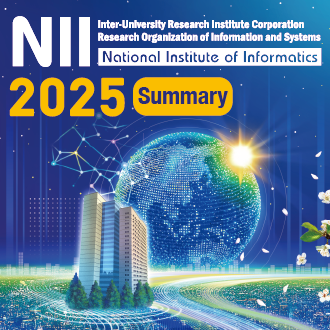 Summary of NII 2024
Summary of NII 2024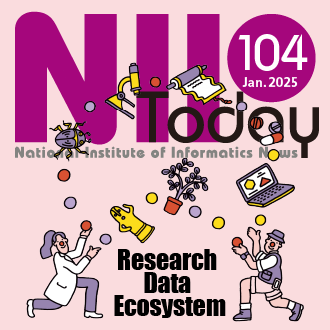 NII Today No.104(EN)
NII Today No.104(EN) NII Today No.103(EN)
NII Today No.103(EN)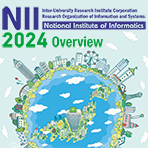 Overview of NII 2024
Overview of NII 2024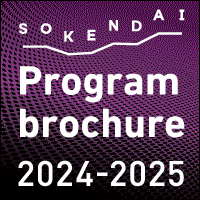 Guidance of Informatics Program, SOKENDAI 24-25
Guidance of Informatics Program, SOKENDAI 24-25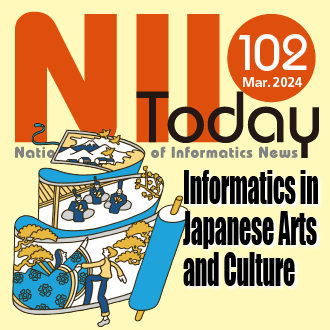 NII Today No.102(EN)
NII Today No.102(EN) SINETStream Use Case: Mobile Animal Laboratory [Bio-Innovation Research Center, Tokushima Univ.]
SINETStream Use Case: Mobile Animal Laboratory [Bio-Innovation Research Center, Tokushima Univ.] The National Institute of Information Basic Principles of Respect for LGBTQ
The National Institute of Information Basic Principles of Respect for LGBTQ DAAD
DAAD
